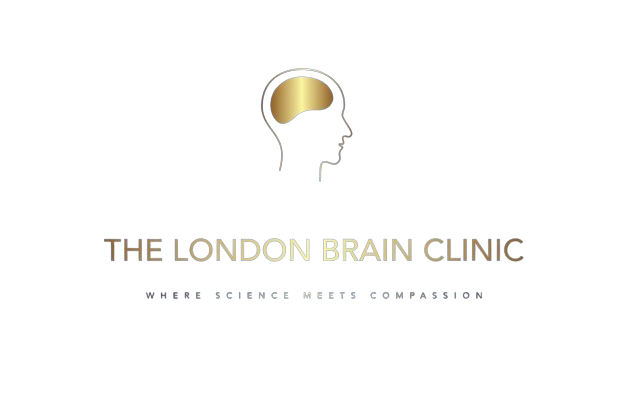Parkinson’s disease is a neurodegenerative disorder that affects millions of people worldwide. While its hallmark symptoms—such as tremors, rigidity, and bradykinesia (slowness of movement)—are well-known, there is another area of concern that often goes unnoticed: sleep disturbances. These disturbances can significantly impact the quality of life for those living with Parkinson’s, and at The London Brain Clinic and The Holistic Parkinson’s Clinic, we work tirelessly to address these challenges and improve overall well-being.
Sleep Problems and Parkinson’s Disease
Sleep disturbances are among the most common non-motor symptoms of Parkinson’s disease, affecting nearly 70-80% of individuals with the condition. These issues can range from difficulty falling asleep, frequent awakenings during the night, to vivid dreams or nightmares. Some of the most frequent sleep problems seen in Parkinson’s include:
- Insomnia: Trouble falling asleep or staying asleep.
- Restless Leg Syndrome (RLS): An uncomfortable sensation in the legs that leads to an overwhelming urge to move them, especially when resting.
- REM Sleep Behaviour Disorder (RBD): Acting out vivid dreams, often resulting in injury.
- Excessive daytime sleepiness (EDS): Uncontrollable urges to nap or feel excessively tired during the day.
These sleep disruptions can exacerbate other Parkinson’s symptoms, such as motor issues, mood changes, and cognitive difficulties. The relationship between sleep and Parkinson’s is complex, often intertwining with the progression of the disease itself.
The Impact of Poor Sleep on Parkinson’s Patients
At The London Brain Clinic, we understand that sleep quality is crucial for maintaining cognitive function, emotional well-being, and overall health in individuals with Parkinson’s disease. Sleep deprivation can lead to increased cognitive decline, higher levels of stress and anxiety, and even worsen motor symptoms like tremors and rigidity.
Poor sleep can also have a direct effect on mental health, contributing to feelings of frustration and helplessness. It’s not uncommon for individuals with Parkinson’s to experience depression or anxiety alongside sleep problems, creating a vicious cycle that is difficult to break.
The First Step in Improving Sleep: Comprehensive Assessment
The first step in improving sleep is a comprehensive assessment to understand what factors are driving the sleep problems. At The London Brain Clinic and The Holistic Parkinson’s Clinic, we begin by examining a variety of factors that can affect sleep, including emotional aspects. Depression and anxiety, common co-occurring symptoms in Parkinson’s, often interact in complex ways with medications and the neurological consequences of the disease, significantly impacting sleep quality.
By conducting a thorough assessment, we can identify and address these emotional and physiological factors, enabling us to create an individualized plan for better sleep management.
Holistic Approaches to Improving Sleep in Parkinson’s
Both The London Brain Clinic and The Holistic Parkinson’s Clinic focus on holistic care, addressing the mind, body, and spirit. We understand that managing Parkinson’s isn’t just about medication—it’s about creating a comprehensive approach that enhances the overall quality of life for each individual.
Our approach to managing sleep disturbances in Parkinson’s includes:
- Personalized Sleep Assessments: We begin by assessing your specific sleep patterns and issues through diagnostic tools and sleep studies. This allows us to develop an individualized plan that addresses your unique challenges.
- Lifestyle and Behavioural Strategies: Incorporating sleep hygiene practices, such as setting a consistent bedtime, reducing caffeine intake, and practicing relaxation techniques, can have a significant impact on sleep quality.
- Cognitive and Emotional Support: Managing emotional health is key to improving sleep. Techniques such as cognitive Behavioural therapy (CBT) for insomnia, as well as mindfulness and relaxation exercises, can help ease anxiety and stress that might be interfering with sleep.
- Physical Activity and Movement: At The Holistic Parkinson’s Clinic, we emphasize the importance of regular exercise. Light, gentle movement such as walking or stretching can help improve sleep quality and reduce symptoms of restless leg syndrome (RLS).
- Medication Management: While medication for Parkinson’s disease can contribute to sleep disturbances, working with our team allows for a careful evaluation of your current medication regimen. We aim to adjust medications to reduce their impact on sleep while ensuring the best management of motor symptoms.
- Interventions for REM Sleep behaviour Disorder (RBD): RBD can be particularly distressing for both the person with Parkinson’s and their loved ones. Our team works with you to explore treatment options that include environmental adjustments and medications aimed at reducing the frequency of these episodes.
The Role of The London Brain Clinic and The Holistic Parkinson’s Clinic
At The London Brain Clinic and The Holistic Parkinson’s Clinic , we believe in a holistic approach to treating Parkinson’s disease. We recognize that sleep is a critical component of overall health and well-being, and improving sleep can significantly enhance other areas of life for individuals with Parkinson’s. Our team of experts is dedicated to addressing sleep disturbances through personalized care, taking into account the complexity of each individual’s condition and needs.
We also believe in the importance of patient and caregiver education, empowering individuals to better understand their condition and how to improve their sleep through lifestyle changes, cognitive strategies, and appropriate medical interventions.
Improving Sleep, Improving Quality of Life
If you or a loved one is struggling with sleep disturbances due to Parkinson’s disease, The London Brain Clinic and The Holistic Parkinson’s Clinic are here to help. Through personalized assessments, holistic interventions, and a compassionate approach, we aim to improve not just sleep, but overall quality of life.
Contact us today to learn more about how we can help you manage sleep disturbances and live better with Parkinson’s.

